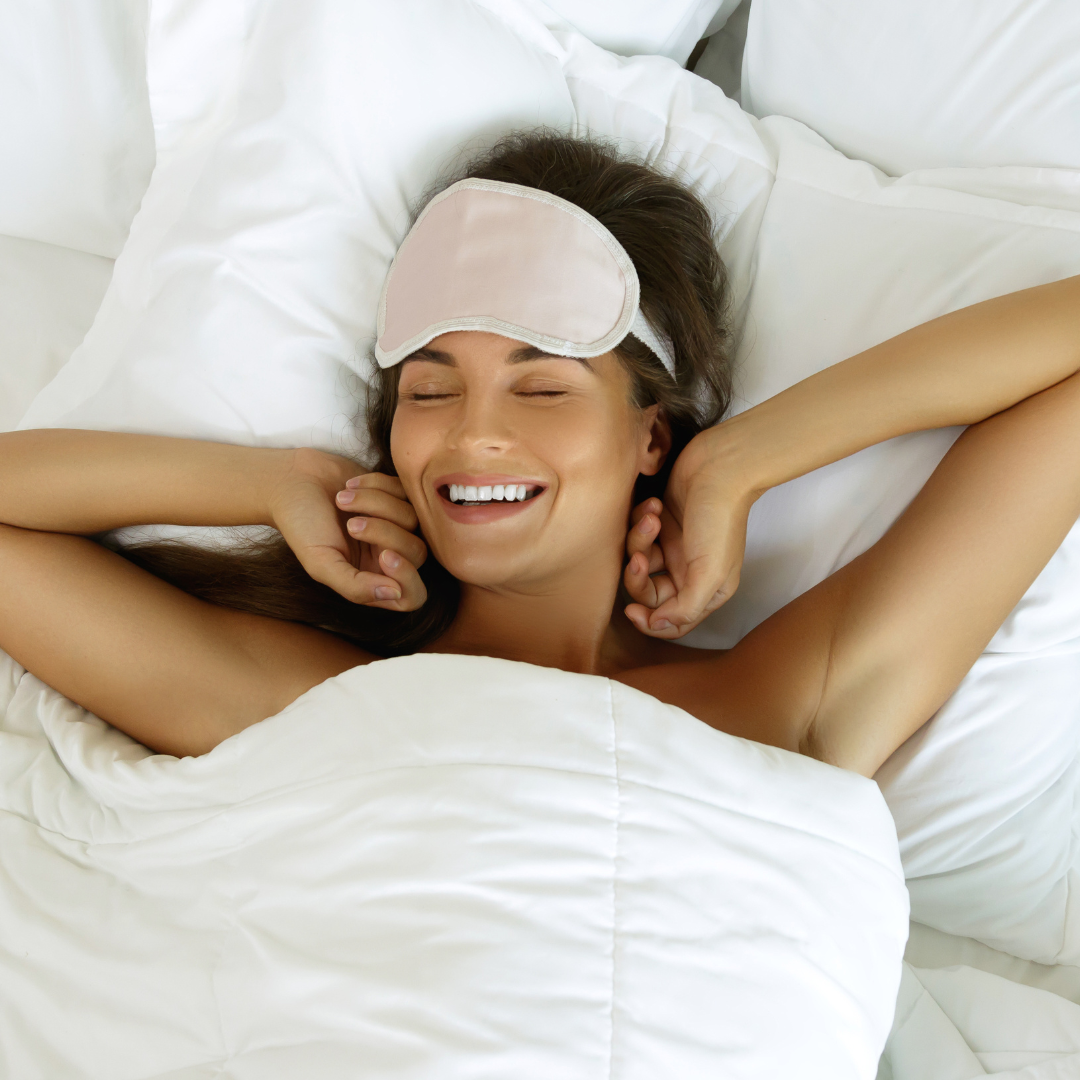By Catherine Morgan
March is a good time for a sleep check-up. With National Bed Month in the UK, Sleep Awareness Week (10-16 March) in the US, and World Sleep Day (15 March) across the globe – plus an imminent clock change – it’s the perfect opportunity to review our slumber habits, especially if we think there’s some room for improvement.
But how do we know we’re getting enough? And what can we do when sleep evades us?
Sleepless Nights
Most of us have experienced sleepless nights at some point in our lives, and for various reasons: burning the candle at both ends, a period of stress, too much caffeine, eating too late, a newborn baby or waking child, certain medications or supplements, a medical issue, and even an unfavourable environment that’s too cold, too hot, too noisy, or too uncomfortable… And sometimes we simply have a bad night’s sleep, and we have no idea why.
Whilst the odd sleepless night is unlikely to do lasting harm – other than making us feel a bit rubbish the next day (sleepy, irritable, foggy-headed, etc.) – regular or prolonged periods of poor sleep can take its toll on us physically, mentally, and emotionally, and could put us at risk of chronic conditions such as heart disease, high blood pressure, obesity, diabetes, and mental health disorders, as well as avoidable accidents.
Sadly, sleep deprivation doesn’t just affect an unfortunate few. According to The Sleep Charity – an organisation on a mission to empower the nation to sleep better – 40% of adults and children suffer with sleep issues.
For those plagued by constant tiredness, assessing sleep quality might be a good place to start – after ruling out anything more serious with a GP if symptoms are persistent or worsening. Although there are many causes of this common complaint, such as stress, dehydration, hormonal imbalances, nutritional deficiencies, an underlying health issue, or simply the demands of life, it could also be a consequence of insufficient restorative sleep.
 |
 |
The Perfect Number
Our sleep needs are as individual as we are, and some people fare better on less sleep than others. However, according to the NHS website, on average, adults need 7-9 hours per night, children need 9-13 hours, and toddlers and babies need 12-17 hours. But quantity isn’t everything and sleep quality matters, too. A good night’s sleep ideally means we’re able to fall asleep easily, have continuous, uninterrupted sleep, and feel well rested, refreshed, and more energised on waking.
Sleep Strategies
For those in need of a sleep overhaul, there are many simple strategies that can help support a decent night’s shut-eye. Here are 10 of them:
1. Establish a healthy routine: Let your body and mind know that it’s time for sleep by following a consistent bedtime routine. Wind down with a good book, a bubble bath, or some relaxing music, and have a set bedtime and wake-up time to help support your body’s natural sleep/wake cycle.
2. Create the right environment: Make sure your bedroom is comfortable and free from distractions – that means no bright lights or noise and a moderate temperature (not too hot, not too cold). Outside noise can be diminished with ear plugs or some soft music, where appropriate, whilst a black out blind or sleep mask can help block out unwanted light. A comfortable mattress and pillow can also support a proper sleep posture, and fresh bedding might also improve sleep satisfaction.
3. Switch off screens: Avoid using electronic devices (smart phones, computers, tablets, televisions, etc.) a couple of hours before bed as the blue light they emit can interfere with the body’s natural sleep cycles. Plus, it’s quite tricky to get into that lovely, relaxed pre-sleep state when watching or reading something that’s likely to provoke fear, upset, stress, or anger.
4. Master the art of relaxation: If you think stress is preventing you from getting some decent shut-eye, try experimenting with different types of relaxation techniques. Whilst it’s not always possible to eliminate the source of stress, you can take action to improve your resilience and limit its impact on your sleep and health. Meditation, visualization, deep-breathing, yoga, and tai chi are common relaxation methods, but you could also use art, music, jigsaws and even knitting, if that’s what works for you.
 |
 |
5. Avoid caffeine and stimulants: Limiting your intake of caffeine and other stimulants after midday could help improve your sleep. Some people are more sensitive to caffeine than others, and even an early afternoon coffee can have them tossing and turning all night. Choose decaffeinated drink options, herbal teas, or caffeine-free alternatives and be aware of hidden sources – such as some soft drinks and chocolate!
6. Go easy on sugary treats: Too much sugar might interfere with your slumber and leave you feeling restless. Aim to keep your blood sugar balanced throughout the day by opting for low glycaemic foods and including some protein with each meal.
7. Get some morning sunlight: Exposure to the morning sunlight can help us sleep better at night as it helps set our internal body clock, or circadian rhythm. If you can, go for an early morning walk when you wake up, or soon after. Although not the same as natural light, a light box can be useful for people who are unable to get any morning sunlight. On the flip side, aim to minimise bright light before bed as it might keep you awake!
8. Keep a notebook and pen to hand: If you’re a late-night thinker, worrier and problem-solver, you may find it useful to have a pen and paper nearby to jot down any thoughts that are keeping you awake. Once you’ve got them out of your head, you can hopefully sleep easy.
9. Skip the nightcap: Whilst a bedtime tipple might help you to unwind and nod off quickly, it can also reduce the quality of your sleep so you don’t reap it’s full benefits. Alcohol is also a diuretic, so you might also find yourself needing a trip to the loo in the wee hours!
10. Stop clock-watching: If you’re struggling to drift off, avoid checking the time repeatedly – estimating how many sleep hours you have left is likely to exacerbate insomnia and leave you feeling frustrated and stressed. If you don’t want to ditch the clock completely, try turning it around or covering it up – and keep your phone out of arms reach!
Some of us don’t always prioritise sleep as highly as we should, but it can have a profound effect on our physical and mental health and wellbeing. A sleep overhaul might be just the thing to wake us up from our sub-optimal slumber habits!
Customer Testimonial
"I am thrilled with my castor oil packs from Castorvida. I purchased the full size pack and the mini pack, as I am keen to use the oil on my eyes as well as my liver. The parcel arrived within 2 days of ordering, and unboxing it was such a delight as it was beautifully packaged and presented. The fabric of the pack itself is soft on the skin and very comfortable to wear, even in bed. Since wearing the pack over my liver, I've been sleeping more deeply and feeling more energised throughout the day.
I am hugely impressed and will be using castor oil packs regularly from now on to support my health. I wholeheartedly recommend Castorvida to anyone looking to try castor oil packs."
Castorvida Customer, Lucy


